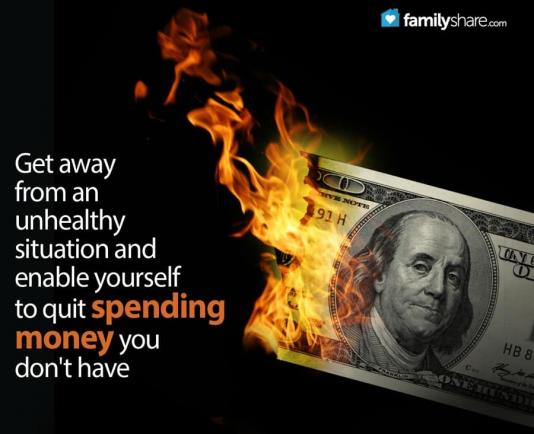
Virtually everyone splurges once in a while, spending too much on something that they don't need. If you're like most people, this pattern doesn't represent a financial problem or even much of an opportunity. You probably cut back on spending naturally for a few days - or weeks if needed - to offset the splurge and everything falls into balance. If you have a real problem, a habitual pattern of splurging, however, you may be dooming your financial future.
First, let's try a financial diagnosis to see if you have a problem. Right now, do you have credit card that exceeds all of your available cash? In other words, if you had to pay it all off today, could you do it? If not, you may have a problem. Now, consider whether you have purchased things in the last 60 days that you haven't yet used. If there is one thing or even two, it's not a big deal. If you can walk around the house and open closets and cupboards and find jackets you've never worn, shoes that have never been out of the house, kitchen gadgets that have never been in the dishwasher, tops or skirts that still have tags on them, camping gear that's never seen dirt, home decorations that are stuck in closets and have never decorated anything or apps on your phone that you've never used, you've got a problem. Keep reading!
Now, let's consider why you're buying things you don't need. (I'm not a psychologist; I'm someone who loves to spend money.) Buying something is satisfying a need, perhaps for power or control, which should be coming from something else in your life. Give some thought to your biggest problems - apart from the spending. Give particular thought to things that make you feel like you want to go shopping. It may be the way your boss makes you feel. Anything that makes you feel powerless, anxious, or unappreciated, could be contributing to the problem. If you can identify the problem, you may be able to identify an alternative to shopping.
If not having enough money makes you anxious when bills come - and they come often - you could be shopping with your credit cards as a (futile) way to regain control over your finances. If your boss belittles you at the office, mocking your contributions, spending may give you a sense of power that helps compensate. If your spouse or children have been taking you for granted and you don't feel appreciated, splurging on yourself may be a way to soothe your hurt feelings.
If you can identify the trigger, the pain point that most drives you to want to shop, you may be able to identify another behavior that would reduce the impact of the trigger. Just understanding that you shop because your boss yells at you could help you resist the temptation to shop. Even more constructively, you could speak with your boss about the problem. If that doesn't work, you could look for a new job. By trying to solve the problem at the root of your problem, you may be able to take control of your life again.
It may take some time, but each time you feel the urge to splurge, ask yourself the question, "why?"� When you find the answer, you may be able to solve two problems at once: You may be able change or get away from an unhealthy situation and enable yourself to quit spending money you don't have.

